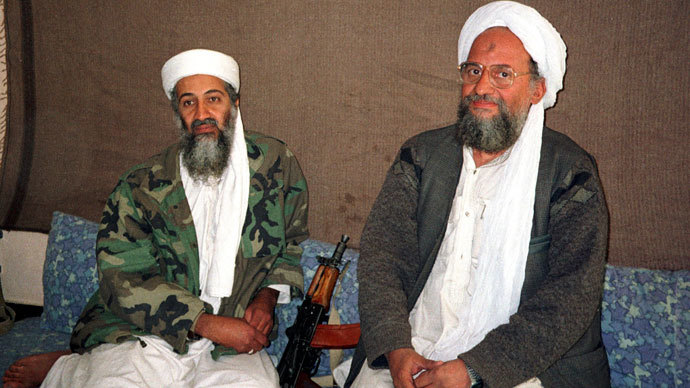The leader of Al-Qaeda marked the twelfth anniversary of the September 11 terrorist attacks with a message advising Muslims to organize large or small terrorist attacks inside the United States, anything they can do to “bleed” the American economy.
Ayman al-Zawahri, the successor to Osama bin Laden, denied that America is a “mythic power” in an audio message released two days after the anniversary. He went on to say that Islamic holy warriors are able to defeat the US with attacks “on its own soil.” Al-Qaeda did not confirm the authenticity of the tape but the message was posted on a radical website favored by the terrorist network.
“We should bleed America economically by motivating it to continue its huge expenditure on its security as America’s weak point is its economy, which already has begun stumbling because of the military and security expenditure,” he said, as quoted by the Associated Press. “America is not a mythic power and the Americans, after all, are humans who can be defeated felled and punished.”
Zawahri went on, saying America intends to use “the Muslim people as a means to topple the pro-Iran Baathist regime and install a secular government and peaceful to Israel.” The US “will try to push the mujahedeen to compromise with the secular factions and the enemies of Islam,” he said.
He also advocated so-called “lone wolf” strikes, taking inspiration from an attack last April.
“He’s looking at the Boston Marathon bombing, which was a terrorist attack but rather small. He’s seen the profound effect it’s had on Boston and he wants more,” John Miller, a former senior official at the FBI and at the office of the Director of National Intelligence, told CBS. “To me, the tacit admission is that Al-Qaeda does not feel it’s in the position, organizationally, to do what it used to do, which is organize and launch themselves.”
The message featured no video footage of the 9/11 attacks, which usually accompany such messages on the anniversary. Miller speculated that Zawahri’s message could indicate splintering within Al-Qaeda.
“I think he lacks the charisma of bin Laden,” Miller went on. “He’s an Egyptian pediatrician and he’s a smart guy, but this message hasn’t resonated.”
Less than 20 minutes into Zawahri’s 77 minute tape he abruptly shifts away from discussing the anniversary to current events in the Middle East, warning jihadist Syrian rebels not to “compromise” with more secular factions of the opposition, who he warned would turn against Al-Nusra and other Al-Qaeda-affiliated groups.
US officials have asserted that the bin Laden-led al-Qaeda familiar to most Americans has lost strength over the past decade, although offshoot militant groups have gained strength in unstable areas throughout the Middle East and North Africa. Operatives targeted US facilities in Libya, a natural gas complex in Algeria, and have gained strength in the Syrian civil war over the past year.
“One of the most concerning things we’re seeing is a cross-fertilization and cross-pollination of affiliates,” a senior US intelligence official told the Washington Post in February. The new groups are worrisome because of their diverse memberships, ability to obtain weapons, and sense of collaboration that “serves as a multiplier effect.”

